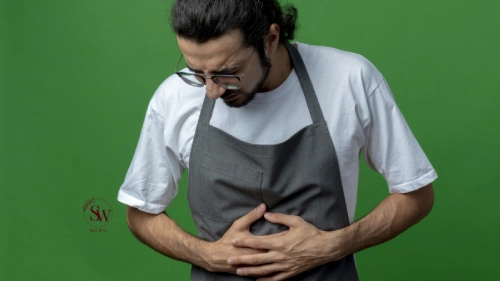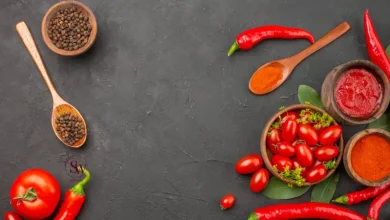
Food poisoning is a common yet often underestimated ailment that affects millions of people worldwide each year. It occurs when contaminated food is consumed, leading to a range of symptoms that can vary from mild discomfort to severe illness. In this comprehensive guide, we’ll delve into the causes, symptoms, prevention, and treatment of food poisoning, equipping you with the knowledge to protect yourself and your loved ones.
What is Food Poisoning?
Food poisoning, also known as foodborne illness, is caused by consuming food or drinks contaminated with harmful bacteria, viruses, parasites, or toxins. These contaminants can enter food at any stage of production, processing, or preparation, leading to their proliferation and subsequent ingestion.
Causes of Food Poisoning
- Bacterial Contamination: Bacteria such as Salmonella, E. coli, Campylobacter, and Listeria are common culprits of food poisoning. They can thrive in various food items, including meat, poultry, eggs, dairy products, and fresh produce.
- Viral Infections: Viruses like norovirus, hepatitis A, and rotavirus can contaminate food through improper handling or contact with infected individuals. These viruses are highly contagious and can spread rapidly, especially in settings such as restaurants, cruise ships, and communal living spaces.
- Parasitic Infections: Parasites such as Giardia, Cryptosporidium, and Toxoplasma can contaminate water sources or raw foods, particularly seafood, fruits, and vegetables. Ingesting these parasites can lead to gastrointestinal symptoms and prolonged illness.
- Toxin Formation: Toxins produced by certain bacteria, such as Clostridium botulinum (causing botulism) and Staphylococcus aureus, can contaminate food during preparation or storage. Ingesting these toxins can result in rapid onset of symptoms, often within hours of consumption.
Symptoms of Food Poisoning

The symptoms of food poisoning can vary depending on the type of contaminant and the individual’s sensitivity. Common symptoms include:
- Nausea and vomiting
- Diarrhea
- Abdominal cramps
- Fever
- Headache
- Muscle aches
- Fatigue
In severe cases, food poisoning can lead to dehydration, electrolyte imbalances, organ failure, and even death, particularly in vulnerable populations such as young children, elderly individuals, pregnant women, and those with weakened immune systems.
Prevention of Food Poisoning

Preventing food poisoning begins with practicing proper food safety measures at every stage of food handling, preparation, and consumption. Here are some essential tips:
- Cleanliness: Wash hands thoroughly with soap and water before and after handling food, especially raw meat, poultry, seafood, and eggs. Clean and sanitize kitchen surfaces, utensils, and cutting boards regularly.
- Separation: Keep raw meats separate from other foods to prevent cross-contamination. Use separate cutting boards and utensils for raw and cooked foods, and never reuse marinades or sauces that have come into contact with raw meat.
- Cooking: Cook foods to the appropriate internal temperature to kill harmful bacteria. Use a food thermometer to ensure meats, poultry, seafood, and egg dishes reach the recommended temperature (e.g., 165°F for poultry, 145°F for fish).
- Chilling: Refrigerate perishable foods promptly to slow the growth of bacteria. Keep refrigerator temperatures below 40°F (4°C) and freezer temperatures below 0°F (-18°C). Thaw frozen foods safely in the refrigerator, microwave, or cold water bath.
- Avoiding High-Risk Foods: Exercise caution when consuming raw or undercooked foods, unpasteurized dairy products, and foods prepared with raw eggs or shellfish. Choose reputable sources for seafood and follow local advisories regarding fish consumption.
- Safe Water and Beverages: Drink only pasteurized or boiled water in areas with uncertain water quality. Avoid ice cubes made from untreated water and unpasteurized beverages.
Treatment of Food Poisoning

If you suspect you have food poisoning, it’s essential to stay hydrated and seek medical attention if symptoms are severe or persistent. Treatment may include:
- Rehydration: Drink plenty of fluids, including water, electrolyte solutions, clear broths, and herbal teas, to replace lost fluids and electrolytes.
- Rest: Give your body time to recover by resting and avoiding strenuous activities.
- Medications: Over-the-counter medications such as anti-diarrheal and antacids may help alleviate symptoms, but consult a healthcare professional before use, especially in children or individuals with underlying medical conditions.
- Antibiotics: In some cases of bacterial food poisoning, antibiotics may be prescribed to shorten the duration of illness and prevent complications. However, antibiotics are not effective against viral or parasitic infections.
Also Read: Food for Good Bowel Movement
How Long Would Food Poisoning Last?

The duration of food poisoning can vary depending on the type of contaminant and individual factors. In most cases, symptoms resolve within a few days to a week. However, certain pathogens or toxins may cause prolonged illness or complications. It’s essential to stay hydrated and seek medical attention if symptoms persist or worsen. While mild cases of food poisoning may resolve on their own with supportive care, severe or untreated cases can lead to complications such as dehydration, electrolyte imbalances, and organ failure. Therefore, it’s crucial to monitor symptoms closely and seek appropriate medical care if needed.
FAQs (Frequently Asked Questions)
- How long does food poisoning last?
The duration of food poisoning can vary depending on the type of contaminant and individual factors. In most cases, symptoms resolve within a few days to a week. However, certain pathogens or toxins may cause prolonged illness or complications. - Can food poisoning be fatal?
While most cases of food poisoning resolve on their own with supportive care, severe or untreated cases can lead to complications such as dehydration, organ failure, and death, particularly in high-risk individuals. - What foods are most commonly associated with food poisoning?
Foods commonly implicated in food poisoning include raw or undercooked meats, poultry, seafood, eggs, unpasteurized dairy products, fresh produce, and foods prepared in unsanitary conditions. - How can I prevent food poisoning when eating out?
When dining out, choose reputable restaurants with clean facilities and well-trained staff. Avoid eating raw or undercooked foods, and inquire about food handling practices if uncertain. Trust your instincts; if something seems off, it’s best to err on the side of caution. - Is it safe to reheat leftover food?
Reheating leftover food to the proper temperature (165°F or 74°C) can help kill any remaining bacteria and reduce the risk of foodborne illness. However, it’s essential to handle and store leftovers safely to prevent contamination during storage and reheating.
In conclusion, food poisoning is a preventable yet significant public health concern that can cause significant discomfort and, in severe cases, life-threatening complications. By practicing proper food safety measures, including cleanliness, separation, cooking, chilling, and safe water and beverage consumption, you can minimize your risk of foodborne illness and enjoy meals safely. Stay informed, stay vigilant, and prioritize your health and well-being in every culinary endeavor.



